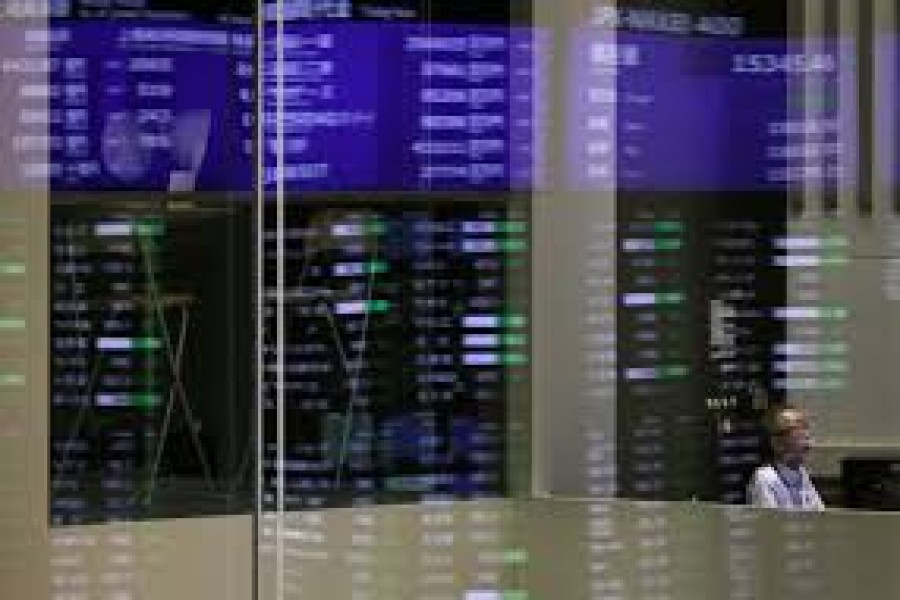Asian stocks fell further Friday after Wall Street slid on recession fears, putting markets in Shanghai, Tokyo and Sydney on track to end 2018 down more than 10 per cent.
Tokyo’s Nikkei 225 index fell 1.9 per cent and the Shanghai Composite Index lost 0.9 percent. The Chinese market is 2018′s worst performer, down nearly 25 percent for the year.
Stocks usually end the year with a flourish. But investors worry global economic growth is cooling and the U.S. could slip into a recession in the next few years.
U.S. markets are cooling after “years of outperformance” and working off “overvaluation in some areas” such as major tech companies, said Shane Oliver of AMP Capital in a report.
China and other emerging Asian markets “fell much earlier and harder and so far are holding above their October lows,” said Oliver.
The Nikkei declined to 20,015.67 points, putting its loss for the year at nearly 13 percent, while the Shanghai index declined to 2,512.54. Sydney’s S&P-ASX 200 retreated 1.2 percent to 5,440.70 and Hong Kong’s Hang Seng gave up 0.8 percent to 25,426.24.
Seoul’s Kospi retreated 0.3 percent to 2,052.01 and benchmarks in Taiwan, New Zealand and Southeast Asia also declined.
Wall Street is headed for its worst December since the Great Depression.
The Dow Jones Industrial Average dropped 464 points on Thursday, bringing its losses to more than 1,700 since last Friday.
The broader Standard & Poor’s 500 index is down 16 percent from its late-September peak. The technology-heavy Nasdaq composite is down 19.5 percent from its record high in August.
The market is swooning even as the U.S. economy is on track to expand at the fastest pace in 13 years. Markets tend to move, however, on what investors anticipate will happen further out.
Among other threats: the trade dispute between the U.S. and China, and rising U.S. interest rates, which act as a brake on economic growth by making it more expensive for businesses and individuals to borrow money.
The S&P 500 index lost 1.6 percent to 2,467.42. The Dow fell 2 percent to 22,859.60.
The Nasdaq fell 1.6 percent to 6,528.41. The Russell 2000 index of smaller companies dropped 23.23 points, or 1.7 percent, to 1,326.
This week’s U.S. sell-off came after the Federal Reserve raised interest rates for the fourth time this year and signaled more increases are likely next year. Investors were disappointed Chairman Jerome Powell failed to indicate a bigger slowdown in the pace of rate hikes.
On Thursday, Treasury Secretary Steven Mnuchin told Fox Business the market reaction to the Fed was “completely overblown.”
In Asia, investors were disappointed Chinese President Xi Jinping announced no initiatives to boost cooling economic growth in a speech Tuesday.
In energy markets, benchmark U.S. crude rebounded 65 cents to $46.55 per barrel in electronic trading on the New York Mercantile Exchange. That came after the contract plunged $2.29 on Thursday to close at $45.88.
Brent crude, used to price international oils, rose 79 cents to $55.14 per barrel in London. It fell $2.89 the previous session to $54.35.
In currency trading, the dollar edged down to 111.21 yen from Thursday’s 111.24 yen. The euro gained to $1.1454 from $1.1447.


